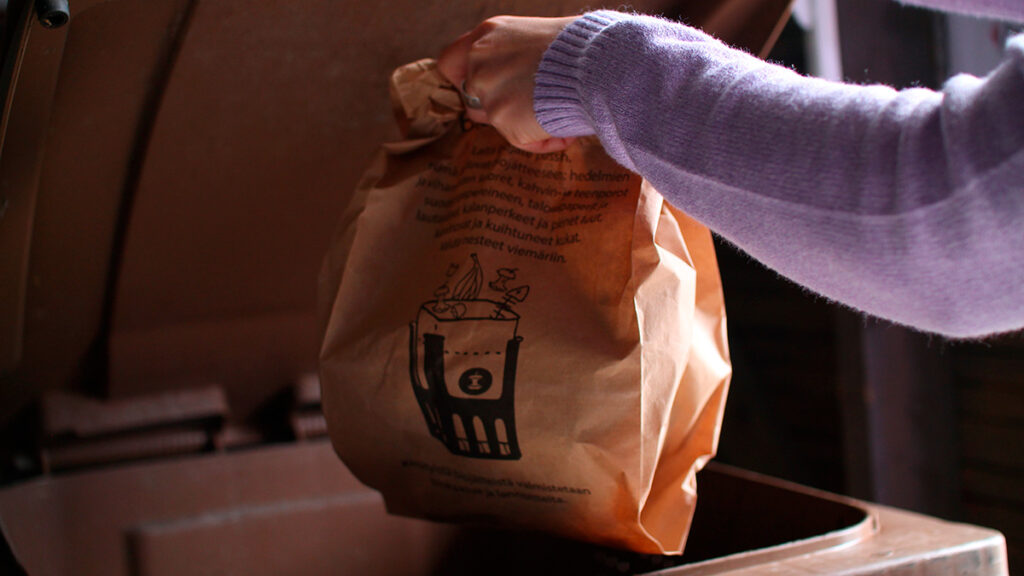Obligation to sort bio-waste requires action from property owners – several options available

The obligation to sort biowaste will be new for around 5,200 single family homes, semi-detached houses and housing companies. During February and March, waste collector company Jätekukko will send letters to the households concerned by the new obligation to sort bio-waste.
Households concerned by the bio-waste sorting obligation will have the opportunity to choose the most appropriate way of sorting their bio-waste. For the collection of separately collected bio-waste, Jätekukko will deliver a container to the property free of charge.
Options for sorting bio-waste
- Group sorting with your neighbours
The sorting of biowaste is carried out with your neighbours in a shared bio-waste bin, which is emptied by the waste collector. In a group, the cost of emptying is shared between the members, and each member receives an invoice from Jätekukko.
2. Your own bio-waste bin
The property orders its own emptying biowaste container from Jätekukko. The bin can be easily converted into a group sorting bin at a later date.
3. Home composting
The composter is purchased at the property’s own expense and a composting declaration is made to Jätekukko when it is put into operation.
It is worth sorting bio-waste
Separately collected biowaste collected by Jätekukko is delivered to Kuopio biogas plant for treatment. Biowaste is used as raw material for domestic recycled fertilisers and energy production. Alternatively, by composting at home, bio-waste can be used as fertiliser in your own garden.
Separate sorting of bio-waste reduces the amount of bio-waste in mixed waste. Sorting bio-waste allows for less frequent emptying of the mixed waste bin. This saves the customer money on the cost of emptying the mixed waste bin. It also makes sense to separate wet bio-waste for energy recovery.
The extension of bio-waste sorting aims to improve material recycling and waste utilisation. The recycling target for municipal waste is 65% in 2035. Bio-waste recycling will play an important role in achieving this target.


